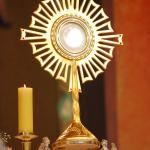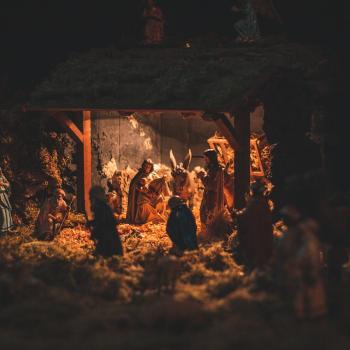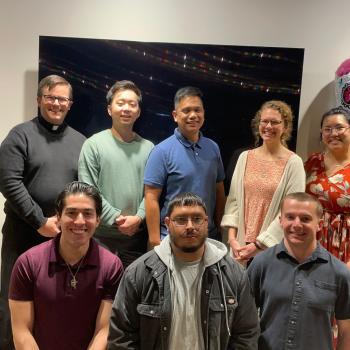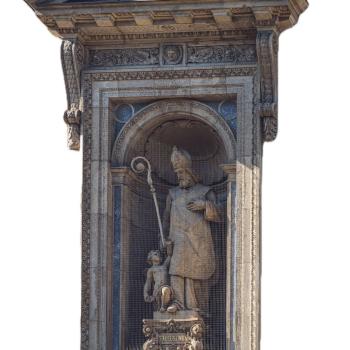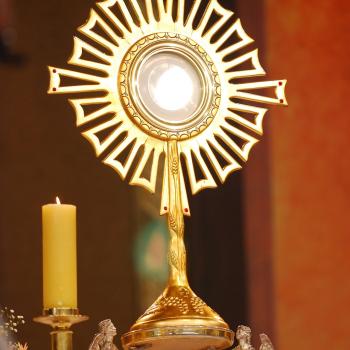The movie The Ultimate Gift tells the story of a young man who inherits a tremendous amount of wealth–at least that was what he expected upon the death of his grandfather. To receive the money, however, he has to change himself dramatically from the self-centered playboy we see at the beginning of the movie who wastes money with abandon. Upon the death of his grandfather, his supply of money is cut off and he experiences financial limitations for the first time in his life. He goes through a series of tests until he is able to receive the prize of his inheritance I will stop here to avoid giving more details so that you can enjoy the movie. In any case, what the grandfather did is an example of a memorial, a remembrance. He ensured that his memory would be enshrined with his grandson and that his heir would be taught a valuable lesson. Does this sound like Jesus? Did he just want to make sure that we remember him and learn some life-lessons?
Some people claim just that. They think that the fact that Jesus says “do this in remembrance of me” at the Last Supper shows that later re-enactments of the Last Supper are a remembrance and nothing more. In doing so, they deny the sacrificial aspect of the Mass. We can put on a play and remember what Jesus did at the Last Supper, but this would be essentially different from the Sacrifice of the Mass. At the same time, the Eucharistic Celebration does have an aspect of memorial, as the Catechism teaches in number 1232:
At the Last Supper, on the night when He was betrayed, our Savior instituted the eucharistic sacrifice of His Body and Blood. He did this in order to perpetuate the sacrifice of the Cross throughout the centuries until He should come again, and so to entrust to His beloved spouse, the Church, a memorial of His death and resurrection: a sacrament of love, a sign of unity, a bond of charity, a paschal banquet in which Christ is eaten, the mind is filled with grace, and a pledge of future glory is given to us. (Constitution on the Sacred Liturgy Sacrosanctum Concilium, 47; quoted in Catechism of the Catholic Church, 1323)
We see four basic features of the Eucharist as memorial: it is sacrament, a sign, a bond, and a banquet. We need to take each one of these aspects into account if we want to remember Jesus correctly.
Sacrament of Love
The Eucharist is a sacrament. The word “sacrament” comes from sacramentum in Latin, meaning “oath.” A solemn promise takes place. Within Catholic theology, the sacraments are
efficacious signs of grace, instituted by Christ and entrusted to the Church, by which divine life is dispensed to us. The visible rites by which the sacraments are celebrated signify and make present the graces proper to each sacrament. They bear fruit in those who receive them with the required dispositions. (Catechism of the Catholic Church, 1131)
Even among the sacraments, the Eucharist takes on a privileged place.
The mystery of the Incarnation is central to the Christian faith. God became man, and in doing so, elevated everything that is human. There is something earthly and something divine in every sacrament. For baptism, regular water is used to introduce somebody into divine life and the mystery of the Church. The Eucharist begins with ordinary bread but through the words of consecration ends up as the true Body and Blood of Christ. The sacrament of the Eucharist is a sacrament of love and is the center of the Church. The “gaze of the Church is constantly turned to her Lord, present in the Sacrament of the Altar, in which she discovers the full manifestation of his boundless love” (Pope John Paul II, Ecclesia de Eucharistia, 1)
The Eucharist is a sacrament of love because it is an oath of love between God and the faithful.
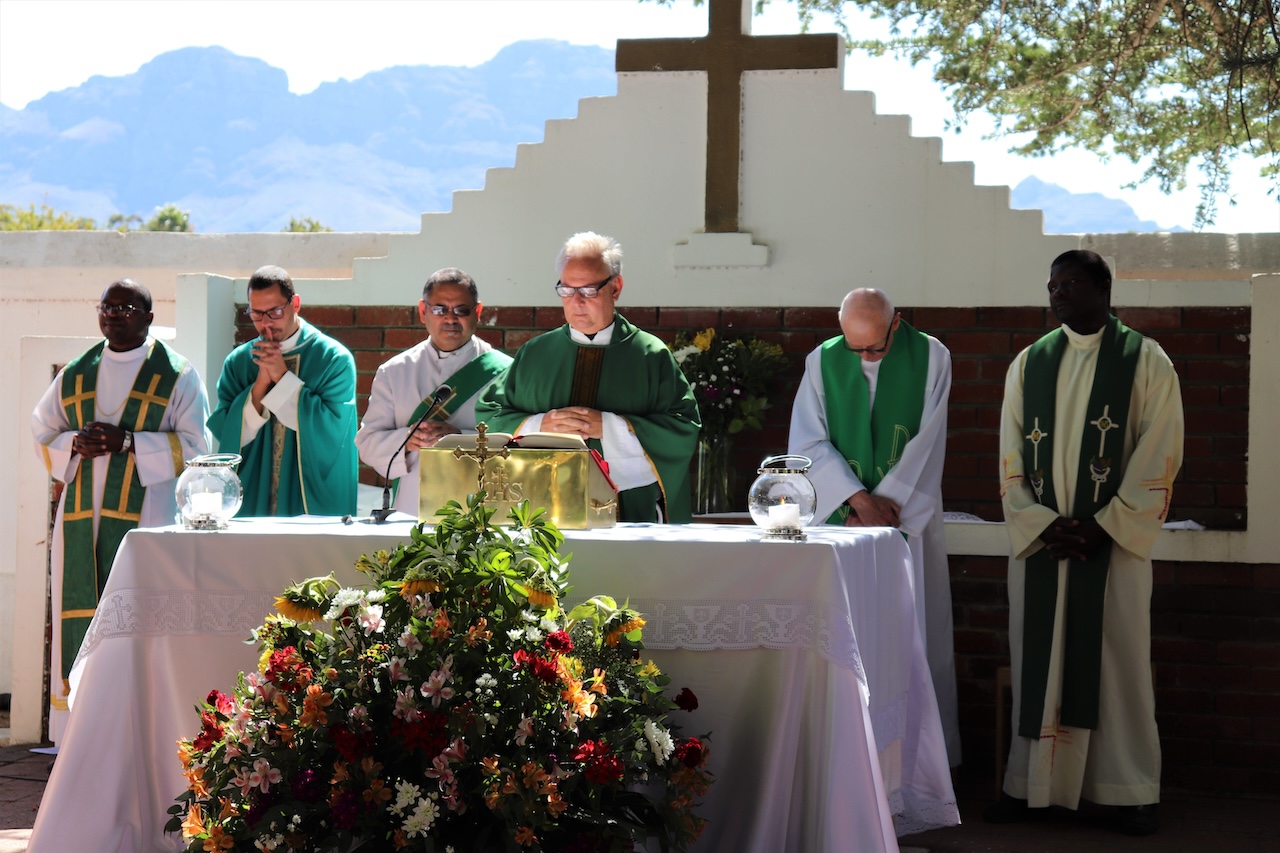
Sign of Unity
The Eucharist is a sign. The term “sign” comes up in the definition of “sacrament” showing that sacraments are signs. Signs are things that point us to something else. The matter of the water of baptism turn our attention to the reality of entering into the divine life. What appears to be bread and wine in the Eucharist draw our attention to Jesus, the Lord, whom we receive in Communion. The Eucharist is a sign of unity because we all partake of the same Christ. St. Paul expresses this in Romans 12:5. “So we, though many, are one body in Christ* and individually parts of one another” (Rm. 12:5)
Bond of Charity
The term “bond of charity” comes from Saint Augustine’s commentary on the Gospel of John. It does not make any sense to attack one’s own body, so by partaking in the Eucharist we pledge loyalty to the body, which is the Church. Every covenant is a bond. This comes out clearly in the New Testament as a bond of charity because the Covenant is a covenant of love. Charity is love, and so our covenant of love is a bond of charity.
Paschal Banquet
Finally, the Eucharist is a banquet. Jesus asks us to eat together in remembrance of him. There should be a sense of feasting when we come together to celebrate the Eucharist. It is a paschal banquet because it reminds us of the reality of the Passover. For the Jews, this feast was a remembrance of their escape from Egypt and the beginning of the Exodus. God then established a covenant with them by giving them the Law. For Christians, the paschal banquet serves as a remembrance of the institution of the New Law which is ratified every time we celebrate the Eucharist, the presiding priest as minister, and the congregation participating by the common priesthood of the faithful.
Memorial
Through the Eucharistic Celebration, we remember the death of the Lord, as well as his resurrection. To reduce it to being “simply a remembrance” would be a grave mistake, since even under this lens of remembrance, it contains these four aspects of sacrament, sign, bond, and banquet. This does not fully take into consideration its essential nature as a true sacrifice. Jesus does want us to remember him, but even beyond that he wants us to participate in the sacrifice of the Mass because this opens to us the doors to Heaven.
Subscribe to the newsletter to never miss an article.
Read about the Mass as the authentic sacrifice to the Father.




